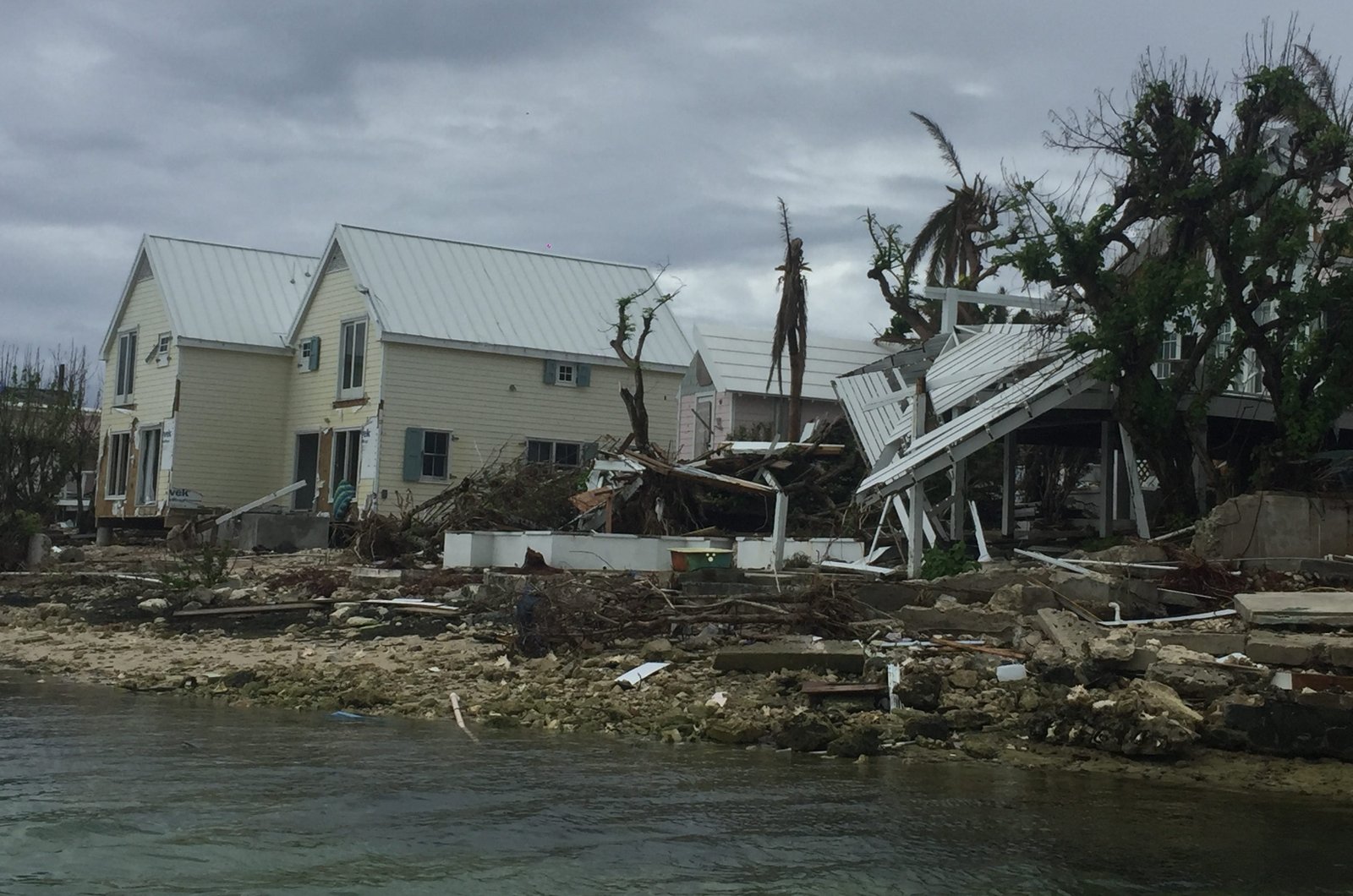After Hurricane Dorian, the strongest Atlantic hurricane to ever make landfall, we are challenged by the daunting task of recovery and reconstruction in Abaco and Grand Bahama.
I have visited both islands to assist with relief for those evacuating and to get a sense of the destruction faced by those who survived the storm. The devastation of property and infrastructure was shocking, but as I met those who made it through the storm, their stories of survival and loss were beyond horrific.
Having moved beyond the initial stage of immediate relief, as a country, we are now looking down the barrel of a massive recovery and reconstruction effort. This recovery effort is not just a task for the people of Abaco and Grand Bahama— we are all responsible for their restoration.
While people may still need canned goods, drinking water and baby formula, our government must begin considering how we rebuild out of the rubble left by Hurricane Dorian.
Even in these challenging times, I believe there is an opportunity here.
For example, we know from this experience that there is significant international attention on how best to help The Bahamas.
The scale of this disaster means that the government, by itself, cannot overcome the challenges we face alone. And, if we are to return the northern Bahamas to some normalcy, that effort cannot be successful with an ad hoc agenda.
As we work through what comes next, what we need now more than ever is a big idea.
The recovery and reconstruction of Abaco and Grand Bahama should be guided by an encompassing vision— one that is strategic, achievable, modern, sustainable, and integrated into the broader national development of our Commonwealth.
While analyzing recovery efforts in New Orleans after Hurrican Katrina, Researchers from the Massachusetts Institute of Technology (MIT) noted that an ad hoc approach to reconstruction did not work in the best interest of the city’s locals. They concluded that rebuilding similarly devastated areas should be planned and managed. If not, there is a risk that these efforts can take longer than expected and exacerbate issue of inequality. These same researchers argued that targeted and coordinated investment is essential to paving the way for the return of evacuees.
This case study suggests that clear short, medium and long-term objectives and strategies must be agreed by our leaders. We need to know where we want Abaco and Grand Bahama to be, as well as the rest of The Bahamas, once the dust settles.
Again, the government cannot do this alone. So, while our leaders must set a vision for the way forward, the involvement of the private sector will be vital to all efforts.
The chief economist of Moody’s Analytics, Mark Zandi, laid out a roadmap for economic recovery after a disaster using lessons also learned from Hurricane Katrina.
Along with rebuilding infrastructure and connecting those displaced to the job market, he suggested that the government should implement incentives for housing construction and reconstruction as a crucial step to recovery after a disaster of this kind.
I wrote at the beginning of August that the housing deficit we were experiencing as a country could no longer be solved by the government alone, especially given our current fiscal position. Then, I argued that the government must instead find a means of channeling the resources it does have through a strategically selected set of incentives, mandates, or tax advantages that will make the development of housing for working and middle-class Bahamians make economic sense for investors. The housing deficit that I wrote about at the beginning of August has now become a housing abyss in the wake of Hurricane Dorian.
We should also be careful not to focus solely on rebuilding housing in the affected areas.
Those same MIT researchers I mentioned before warned that recovery efforts focusing too heavily on housing often fail to reestablish critical neighborhood-scale goods and services, such as grocery stores, health care facilities and other businesses that are important to the citizens’ quality of life. Commercial spaces, which are almost entirely absent in Abaco and suffered widespread damage in Grand Bahama, should be included in these incentives as well.
Encouraging this kind of holistic reconstruction of communities is not only about returning those communities to normalcy but can lead to significant economic stimulus, especially in the short-term.
Now is the time for the government to launch a clearly articulated development incentive policy that encourages the private sector, local and abroad, to invest in reconstruction. This program should be a blanket policy across The Bahamas with plainly identified requirements, that will not require the special approvals or extra red tape that can often cause bottlenecks in the investment process. These requirements can range from engaging in sustainable building practices to ensuring that affordable housing units are integrated into developments.
The Ease of Doing Business will be a critical component of success as we aim to rebuild. When we broadcast to the world that we are open for business, that message should reach further than our tourism markets—it should mean something to investors as well. It is local and international investors, along with small businesses, community organizations, government and other stakeholders that will come together to rebuild our communities.
Finally, if we truly want this effort to be a success, it cannot happen in isolation. How we decide to tackle the difficult task of renewing the northern Bahamas should be a part of an integrated, national planning effort. Abaco and Grand Bahama are among the three largest island economies in our archipelago. If we are a nation that is to succeed, we need the people Abaco and Grand Bahama back on their feet.
SEBAS BASTIAN






